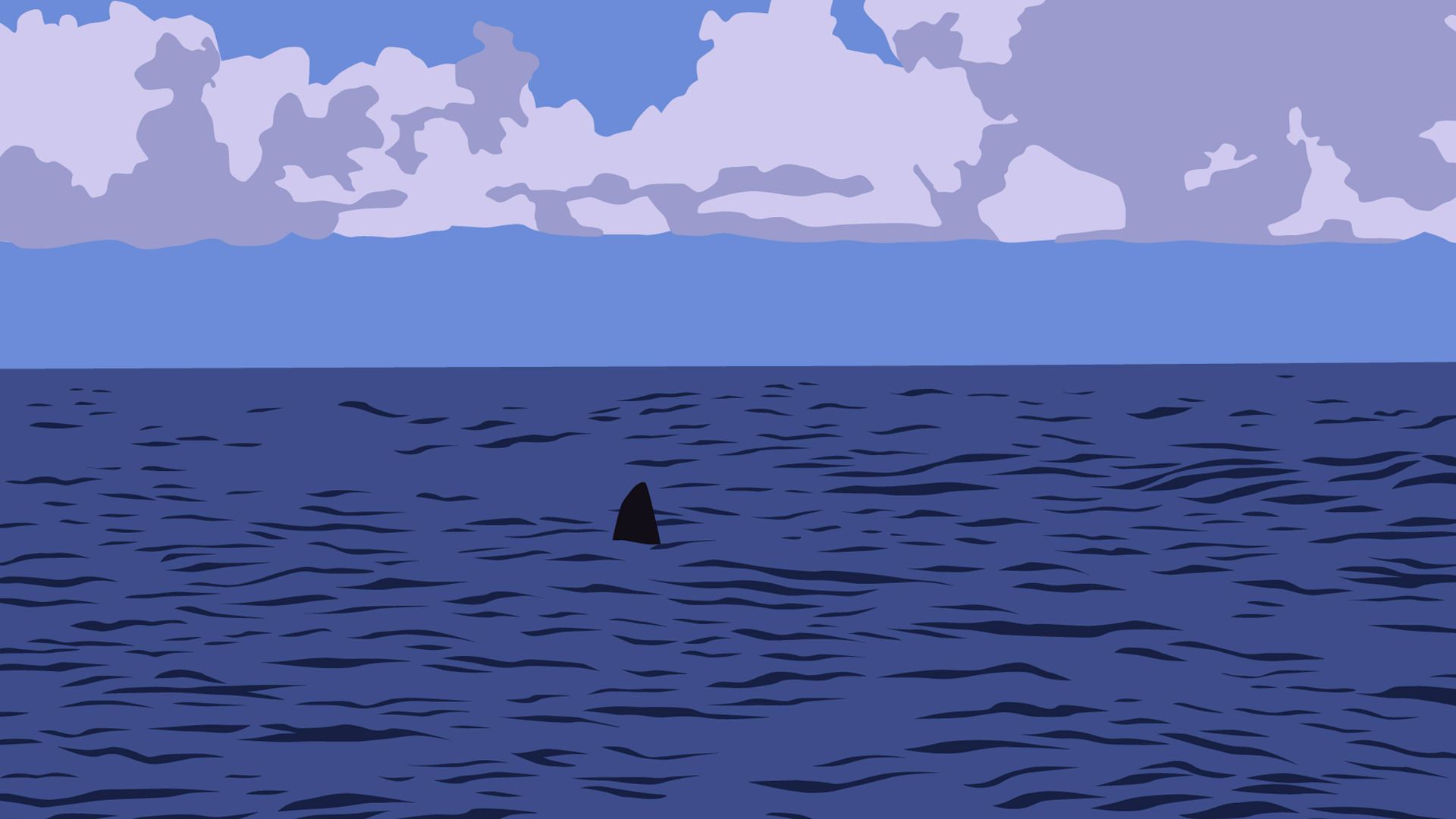 |
| Kota Ezawa Still from "City of Nature" 2011 DVD, 4 minutes Edition of 10 |
For the project, Ezawa appropriated scenes from twenty feature films, including Terrence Malick's "Days of Heaven" and Werner Herzog's "Fitzcarraldo." The sequences Ezawa selected are all devoid of human presence or habitation, and the resulting film is a pastiche of mountain and forest vistas, waterfalls, full moons, and the occasional dog, squirrel, bird, or shark. The Haines Gallery press release states that "these vignettes are edited together to form a new narrative in which nature, otherwise used as cut away or in-between shots, acts as the central character."
While Ezawa's technique unifies the film, I was initially skeptical; the montage of unrelated landscapes and ecosystems seems jarringly disjointed and arbitrary. "City of Nature" is just 4 minutes long, however, and on my third viewing of the loop, I discerned a vague narrative arc moving from pastoral visions -- near the beginning, we see a flock of sheep and a dog, possibly the shepherd, resting on a grassy hill top -- to more abstract, riotous scenes of muted colors and shapes -- piles of leaves and tangles of branches that aren't at once recognizable.
 |
| Kota Ezawa Still from "City of Nature" 2011 DVD, 4 minutes Edition of 10 |
Ezawa's inclusion of footage from Herzog's "Fitzcarraldo" is perhaps telling. In "Burden of Dreams," a documentary about the making of "Fitzcarraldo," Herzog offers a now infamously bleak take on the jungle.
"Taking a close look at what's around us, there is some sort of a harmony; it is the harmony of overwhelming and collective murder. And we, in comparison to the articulate vileness and baseness and obscenity of all this jungle....we, in comparison to that enormous articulation, we only sound and look like badly pronounced and half-finished sentences out a stupid, suburban novel, a cheap novel. And we have to become humble in front of this overwhelming misery, and overwhelming fornication, and overwhelming growth, and overwhelming lack of order. Even the stars up here in the sky look like a mess."Importantly, Les Blank, the documentary's director, punctuates Herzog's rant with scenes of ambling jungle beetles, tree frogs at rest, and leafcutter ants carrying their harvest, thus illustrating the ambiguity of nature. At what point, Blank seems to ask, does the base, violent striving of existence tumble into the profound beauty of being? Are they one and the same? While "Burden of Dreams" stresses this question, Ezawa's "City of Nature" presents it indirectly. The question makes sense in the context of Ezawa's larger project, which seems principally concerned with violence and spectacle on the screen.
Kota Ezawa's solo exhibition, "The Curse of Dimensionality," is on view at Haines Gallery (49 Geary Street, 5th Flr, San Francisco) through February 18.
 |
| Kota Ezawa Still from "City of Nature" 2011 DVD, 4 minutes Edition of 10 |

No comments:
Post a Comment